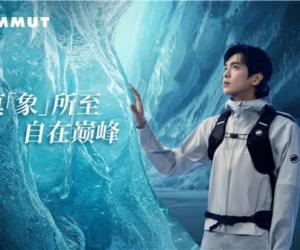
"My new film, Encounters at the End of the World, is a documentary about Antarctica. There is a strangeness and beauty out there that really attracted my curiosity – it’s pure science fiction without any technical trick. All the underwater footage, the footage of the South Pole or the tunnels of ice under Mount Erebus, these are images that haven’t been worn out yet in commercials, on television, or in magazine advertisements. This kind of imagery is deeply embedded in our collective soul, but we haven’t articulated it yet.
I’m trying to name the glories of the continent. I did not go there to make a documentary about cute penguins, because I am opposed to the Disneyfication of wild nature. I have a very stark view. You can see it in Grizzly Man, you can see it in Fitzcarraldo, I could rattle off 20 other examples of my films. Walt Disney is a bastard child of Romanticism. It’s strange that sometimes I have been labelled a romantic, because nobody can be more unromantic than I am.
My style is different from that of television nature documentaries, but I wouldn’t put them down; in Great Britain you have some of the finest in the world. I am a David Attenborough fan. I like his excitement, I like the fervour, and how he comes across to an audience is just wonderful. You see the excitement that you feel as a child when you discover for the first time that there are mountains on the moon when you look through a telescope. He transports this kind of excitement, this spirit of wonder, into what he sees and what he presents. The wonder and excitement he and I share makes us brothers. I salute Attenborough.
Encounters . . . is not about climate change – I don’t need to add to the films about that. Besides, climate change is probably only one of the many elements which show that our presence on this planet is not sustainable. That doesn’t make me nervous. It doesn’t make me nervous that the dinosaurs died out. And it doesn’t make me nervous that the trilobites died out, hundreds of millions of years before the dinosaurs. Life on this planet has been a constant chain of cataclysms and extinctions. It is obvious that we are going to be next.
verybody talks about extinction of the whales, but what we are not aware of is that at the same time, at a much more rapid rate, human languages and cultures are dying out. I am planning a long-term film project on dying languages, and the speed at which they are dying out is staggering. Within the next 50 years, 90 per cent of all spoken languages on this planet will have disappeared without a trace. That is a terrible loss for human culture, because language is always a way to understand the world. You just have to imagine what will happen if tomorrow the last speaker of the Russian language dies out. There would be no more Tolstoy, no more Mandelstam, no more Akhmatova, no more Dostoevsky, no more Orthodox music, no more scientists from Russia, no more philosophers, no more Orthodox Church. It is catastrophic."







